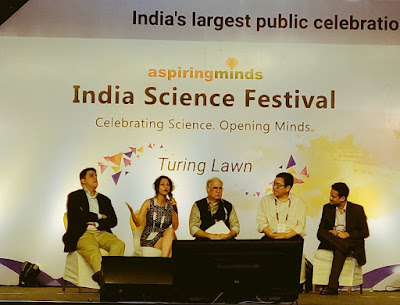New article out on Facebook love and digital privacy
My article is out with Laura Scheiber in the Media, Culture and Society Journal on Facebook love and digital privacy. The open access paper is titled, “Slumdogromance: Facebook love and digital privacy at the margins.” This article is
about how Facebook has consolidated its position as the one-stop-shop for
social activity among the poor in the global South. Sex, romance, and love are
key motivations for mobile and Internet technology usage among this
demographic, much like the West. Digital romance is a critical context through
which we gain fresh perspectives on Internet governance for an emerging digital
and globalizing public. Revenge porn, slut-shaming, and Internet romance scams
are a common and growing malady worldwide. Focusing on how it manifests in
diverse digital cultures will aid in the shaping of new Internet laws for a
more inclusive cross-cultural public. In specific, this article examines how
low-income youth in two of the BRICS (Brazil, Russia, India, China and South
Africa) nations – Brazil and India – exercise and express their notions on
digital privacy, surveillance, and trust through the lens of romance. This
allows for a more thorough investigation of the relationship between sexuality,
morality, and governance within the larger Facebook ecology. As Facebook
becomes the dominant virtual public sphere for the world’s poor, we are
compelled to ask whether inclusivity of the digital users comes at the price of
diversity of digital platforms.
This article can be accessed here
An additional treat came from responses to the article by Catalina Toma, Associate Professor at the University of Wisconsin-Madison and Ramina Sotoudeh (Princeton University), Roger Friedland (New York University) and Janet Afary (University of California, Santa Barbara).
Toma in her paper titled, “Developing online deception literacy while looking for love" argues with the following:
Toma in her paper titled, “Developing online deception literacy while looking for love" argues with the following:
Payal Arora and her colleagues argue that Facebook has become a widely-used tool for finding romance in the global south, especially among marginalized youth. Yet this reliance on Facebook opens users up to the possibility of deception, forcing many to develop a dynamic online deception literacy. In this response paper, I unpack the notion of online deception literacy by reviewing the existing social scientific literature on this topic. I discuss (1) the prevalence of deception in online romance: (2) people’s ability to detect online deception; (3) the cues people use to detect online deception; and (4)
Sotoudeh, Friedland and Afary in their paper titled "Digital romance: the sources of online love in the Muslim world" summarizes the following:
Arora et al. find that young Indians use Facebook to find romantic partners and interact with the opposite sex outside of the circle of people they know, while Brazilians more commonly use it as a tool to keep in touch with friends whom they know offline. The authors attribute this to the more conservative nature of Indian society, especially its widespread disapproval of ‘immoral’ courtship behaviors in public spaces. Facebook, they argue, and social online platforms, in general, create an alternate public sphere that allows for the recalibration and regendering of norms and interactions. In such places, the digital space becomes an alternative public arena for young people to interact, court and love. They argue that the Internet creates an alternative public space in
conservative countries where physical public sphere is too restrictive and does not allow for young men and women to meet, interact and engage in courtship practices





Comments
Post a Comment